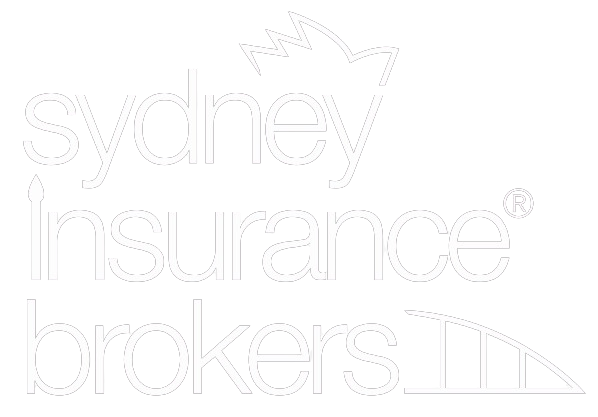Insurance for Retailers in Australia

Running a retail business in Australia comes with its unique set of challenges and risks. From property damage to liability issues, retailers face numerous potential pitfalls. Ensuring adequate insurance coverage is crucial for safeguarding your business. In this article, we will explore the various types of insurance available for Australian retailers and how they can safeguard your enterprise from unforeseen events. Understanding Retail Insurance Retail insurance is a specialized type of business insurance designed to cover the unique risks associated with retail operations. It encompasses a range of policies that protect against different types of losses, ensuring that your business can withstand various challenges. Retail insurance isn’t a one-size-fits-all solution. It includes multiple coverage options, each tailored to address specific risks. Common types of retail insurance include general liability, property insurance, business interruption insurance, workers’ compensation, commercial auto insurance, product liability insurance, cyber liability insurance, and crime insurance. General Liability Insurance Coverage Details General liability insurance protects retailers against claims of bodily injury, property damage, and personal injury. This type of insurance is crucial as it covers legal fees, settlements, and medical costs if someone is injured on your premises. Importance for Retailers For retailers, general liability insurance is indispensable. It safeguards against common incidents such as slip-and-fall accidents, which can result in costly lawsuits. Without this coverage, a single incident could potentially bankrupt a small business. Real-Life Examples Consider a scenario where a customer slips on a wet floor in your store and breaks their arm. In the event of a lawsuit, general liability insurance would provide coverage for both medical expenses and associated legal fees. This coverage provides peace of mind, knowing that your business is protected from such liabilities. Property Insurance Coverage for Physical Assets Property insurance protects your business’s physical assets, including the building (if owned), inventory, fixtures, and equipment. This coverage is vital in case of events like fire, theft, or natural disasters. Types of Property Insurance There are two main types of property insurance: all-risk policies and named-peril policies. All-risk policies cover a wide range of incidents except those specifically excluded, while named-peril policies cover only the risks listed in the policy. Case Studies Imagine a fire breaking out in your store, damaging inventory and equipment. Property insurance would cover the cost of replacing the damaged items and repairing the store, enabling you to get back to business as soon as possible. Business Interruption Insurance What It Covers Business interruption insurance compensates for lost income and operating expenses if your business is forced to shut down temporarily due to a covered event, such as a natural disaster or fire. Why It’s Crucial for Retailers Retailers rely heavily on consistent revenue streams. A temporary closure without this insurance could result in significant financial loss. Business interruption insurance ensures that you can continue to pay expenses like rent and employee salaries even when your store is not operational. How to Calculate Coverage Needs To determine the right amount of coverage, calculate your business’s daily revenue and expenses. Consider how long it might take to resume operations after a disaster. This assessment helps ensure you have adequate coverage to survive an extended closure. Workers’ Compensation Insurance Legal Requirements Most states in Australia require businesses to carry workers’ compensation insurance, which covers medical expenses and lost wages for employees injured on the job. Benefits for Employees and Employers For employees, this insurance ensures they receive necessary medical treatment and financial support during recovery. For employers, it protects against lawsuits from injured employees, as workers typically relinquish the right to sue in exchange for benefits. Case Scenarios If an employee is injured while unloading stock, workers’ compensation insurance would cover their medical bills and a portion of their lost wages. This support helps maintain employee morale and loyalty. Commercial Auto Insurance When Retailers Need It Retailers who use vehicles for business purposes, such as delivery services or transporting goods, need commercial auto insurance. This coverage protects against accidents, theft, and damage involving business vehicles. Coverage Specifics Commercial auto insurance covers liability for bodily injury and property damage, as well as collision and comprehensive coverage for your vehicles. It also includes protection against uninsured motorists. Industry Examples A bakery that delivers cakes using company vans would need commercial auto insurance. If one of the vans is involved in an accident, this insurance would cover repair costs and any liabilities arising from the incident. Product Liability Insurance Importance for Product-Selling Retailers Retailers selling products face the risk of claims arising from product defects that cause injury or damage. Product liability insurance covers legal costs and damages related to these claims. Coverage and Claims Process This insurance covers various claims, including manufacturing defects, design defects, and inadequate warnings or instructions. If a customer sues claiming that a product caused harm, the insurance would handle the legal defense and any settlements. Historical Claims Examples A classic example is the case of a customer suing a toy store because a toy was found to contain hazardous materials. Product liability insurance would cover the store’s legal costs and any compensation awarded to the customer. Cyber Liability Insurance Rising Cyber Threats As retailers increasingly rely on digital systems and online sales, cyber threats become a significant concern. Cyber liability insurance protects against data breaches, hacking, and other cyber incidents. Coverage Options Cyber liability insurance typically covers costs related to data breaches, including notification expenses, legal fees, and penalties. It also offers protection against cyber extortion and data restoration costs Prevention Tips To mitigate cyber risks, retailers should implement robust security measures, such as encryption, firewalls, and regular security audits. Equally important is providing comprehensive employee training on cybersecurity best practices. Crime Insurance Protection Against Theft and Fraud Crime insurance covers losses from theft, fraud, and other criminal acts committed by employees or outsiders. This coverage is vital for retailers dealing with cash transactions and valuable inventory. Real-World Applications For instance, if an employee embezzles funds or a shoplifter steals merchandise, crime insurance would cover the
